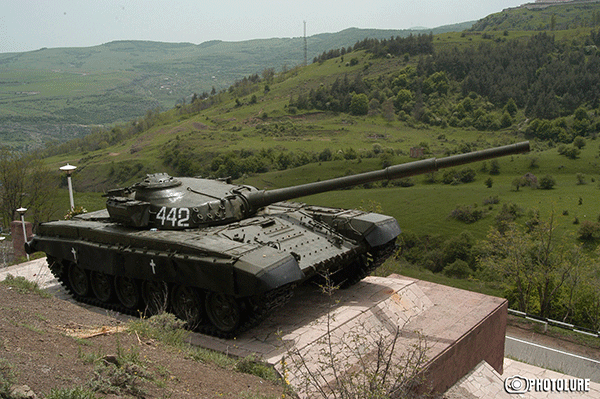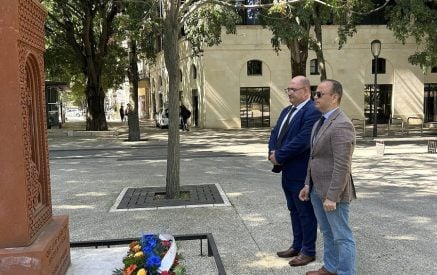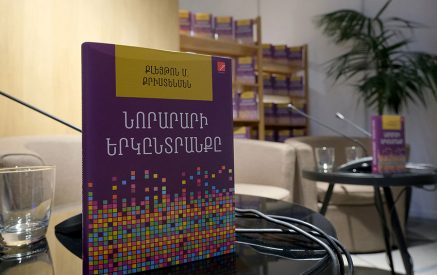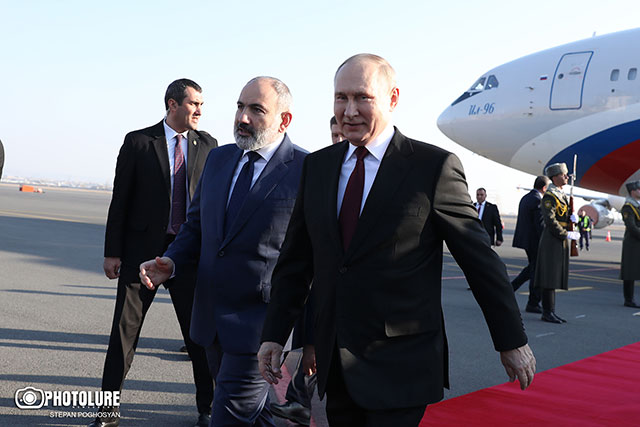Today, with regard to the 20th anniversary of the ceasefire concluded between Armenia and Azerbaijan, the OSCE Minsk Group co-chairs disseminated a statement. In the conversation with Aravot.am, vice-president of “Heritage” party Armen Martirosyan commented on the statement as follows, “The co-chairs actually fully confirmed Warlick’s words. It is clear that Warlick would not say these 6 elements. He has said what was in the document. There is just one problem, Warlick with his statement counterbalanced to Russia’s recent actions and statements, Russia’s Ambassador’s statement that it will not allow anyone to breach the the status quo unilaterally on the Nagorno-Karabakh conflict. For example, in the Crimea and eastern Ukraine, we see that despite the agreements, today, the Crimea is in the composition of Russia due to its active efforts. Such situation occurs in Ukraine. This shows that it would not allow Russia to carry out such operations in Karabakh. In this regard, Warlick’s statement is balancing for Armenia and beneficial.” According to Mr. Martirosyan, it is unacceptable when the co-chairs are talking about the liberated territories. “No one can give a guarantee that by arriving of peacekeeping forces to liberated territories, what position the same peacekeeping forces will take tomorrow. Peacekeeping forces are not going to stay forever, but after they left, Azerbaijan will be in a very advantageous position, and no one can give a guarantee that after this comprehensive agreement, when the liberated territories will be returned to Azerbaijan, it would not take the whole Karabakh with blitzkrieg. It is very easy to reach it through this narrow corridor.” In his speech, the OSCE Minsk Group Co-Chair James Warlick opened the brackets by saying that the corridor, which will connect Armenia with Nagorno-Karabakh, should have sufficient width to ensure a safe transition, but it cannot cover the entire Lachin region. As said by Armen Martirosyan, “Probably, they meant at the maximum of 22-23 km wide. In any case, if Azerbaijan opens a fire onto this corridor from both sides, in one minute this corridor will be blocked and it will not be technically difficult to occupy NKR in terms of military. But now, in the case of these liberated territories, we are the very guarantors to maintain this security, which is most important. Such good strategic positions are the cause that we were able to maintain the peace until now. I do not think that Azerbaijan has not declared war only under the international agreements. I have the belief that Azerbaijan had not conducted war because it knows that it definitely cannot get even a meter of land back as a result of this war, moreover, it may appear in a poorer condition. Therefore, for security reasons, these liberated territories, in fact, are necessary to us to keep the peace. In addition, these territories are the result of the war unleashed by Azerbaijan. Very many people of us have fallen to victim to this war. It has not given to us as a gift. Finally, our partners talking about the guarantees first of all would be good to be able to call the Sevres Treaty to life, and we would see that the international treaties have the force to come to life in the case of Armenia. Let them ensure the return of due land to Armenia by the Treaty of Sevres. But, as it is clear that the politics and reality are on different dimensions, the return of those liberated territories is totally unacceptable to us.” Mr. Martirosyan finds that the return of liberated territories will bring thousands of problems with it. “Peacekeeping forces task is also dangerous, because we do not know what peacekeeping forces they are, what is their goal, and whether they cannot provoke military clashes here in favor of Azerbaijan. That’s why it’s a very dangerous provision. The refugees issue is another problem. Which refugees are we talking about? What rights are they going to have? Will they be able to retrieve their belongings? All Azerbaijanis have left Armenia by exchanging their houses or selling their properties. But the Armenians in Azerbaijan had simply left their untold riches and escaped. Now will they be able to ensure the restoration of their property? This is also a problem. It is clear that the document, the Madrid principles, and the OSCE co-chairs’ recent statement have many drawbacks. The solution to the problem is completely on a different dimension, in the reforms in Armenia, in keeping the population of Armenia in its homeland. The land liberated by the blood and life of our brothers gives us the very opportunities that we are able to maintain our security and vital interests with much more relaxed and fewer resources.”
Hripsime JEBEJYAN

























































